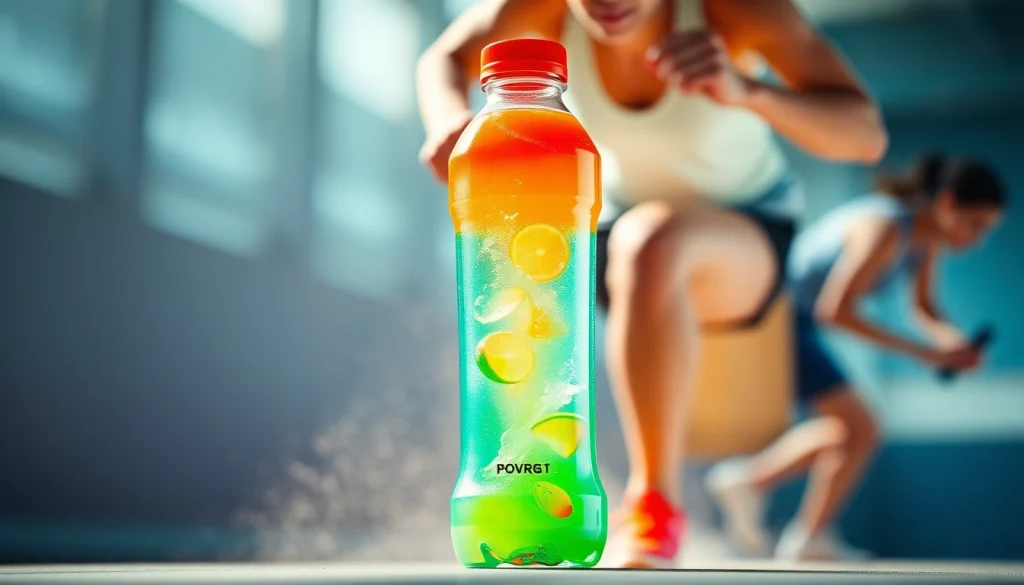What Is a Sports Drink?
Definition and Purpose
Sports drinks are specially formulated beverages designed to hydrate and replenish nutrients lost during physical activity. Unlike regular water, sportsdrink contain electrolytes—minerals like sodium, potassium, magnesium, and calcium—along with carbohydrates that fuel your muscles and maintain energy levels. They are particularly beneficial for athletes conducting prolonged and strenuous exercise as they support hydration and energy replenishment.
The Role of Electrolytes
Electrolytes are crucial for a variety of bodily functions, particularly during exercise. They help regulate nerve and muscle function, hydrate the body, balance blood acidity and pressure, and rebuild damaged tissue. When we sweat, we lose these electrolytes, and while water helps with hydration, it does not restore electrolytes. Sports drinks fill this gap by providing a targeted solution to help athletes maintain optimal performance.
Types of Sports Drinks Available
There are several types of sports drinks available, each tailored to specific needs:
- Isotonic: Contains similar concentrations of salt and sugar as in the human body. Ideal for rapid hydration and energy replenishment.
- Hypotonic: Lower sugar content; suitable for quick hydration without a lot of calories. Often preferred for low-intensity workouts.
- Hypertonic: Higher sugar concentration, which may provide a quick energy boost. Best taken post-exercise to recover energy levels.
Benefits of Sports Drinks for Athletes
Hydration and Electrolyte Balance
One of the primary benefits of sports drinks is their effectiveness in promoting hydration and maintaining electrolyte balance during and after exercise. When exercising for extended periods, especially in hot conditions, athletes can lose significant amounts of electrolytes through sweat. Sports drinks quickly replace these lost minerals, preventing cramping and fatigue.
Energy Restoration During Exercise
Carbohydrates in sports drinks serve as an energy source for athletes, especially during prolonged activities. Studies show that consuming carbohydrate-rich beverages can enhance endurance and performance by providing a readily available source of energy. This is particularly important in endurance sports such as marathon running or long-distance cycling, where glycogen stores can easily be depleted.
Supporting Recovery Post-Workout
Consuming sports drinks post-exercise aids in recovery by replenishing glycogen stores and restoring electrolytes. This can speed up recovery time, enabling athletes to train harder and more frequently without extended downtime. Additionally, incorporating protein alongside carbohydrates can enhance recovery further, promoting muscle repair and growth.
The Best Times to Consume Sports Drinks
Pre-Exercise Hydration Strategies
Hydration before exercising is crucial as it sets the stage for optimal performance. It is recommended to consume a sports drink about 30 to 60 minutes before exercising, particularly if the workout will exceed 60 minutes or take place in a hot environment. This practice ensures that electrolytes are present and available at the start of physical activity.
Optimal Intake During Workouts
For activities lasting over an hour, sipping on a sports drink every 15 to 20 minutes can significantly enhance hydration. The ideal concentration of carbohydrates is around 6-8%, as this allows for quick absorption while providing sufficient energy to sustain performance. This strategy can help stave off fatigue and maintain endurance.
Post-Exercise Consumption Guidelines
After completing an exercise session, it is recommended to consume a sports drink within 30 minutes. This window is particularly beneficial for replenishing lost fluids and electrolytes and can be combined with protein for enhanced recovery benefits. Aim for a drink that offers a balanced mix of carbohydrates and electrolytes for best results.
How to Choose the Right Sports Drink
Understanding Ingredients and Nutritional Value
When selecting a sports drink, it is essential to read ingredient labels carefully. Look for drinks that contain natural ingredients and avoid those with high amounts of artificial flavors, colors, and preservatives. Additionally, consider the electrolyte composition; a good sports drink should ideally have sodium and potassium to help replenish what is lost through sweat.
Evaluating Sugar and Caloric Content
Sports drinks can vary significantly in sugar and caloric content, which can impact performance and recovery. While some sugar is necessary for energy, high-sugar drinks can lead to unwanted weight gain and health issues over time. For athletes with high caloric expenditures, a higher-calorie drink may be appropriate, but recreational athletes may prefer lower-calorie options.
Brand Comparisons and Recommendations
The market offers numerous brands of sports drinks, each with its unique formulation. Some popular brands include Gatorade, Powerade, and BODYARMOR. Researching and comparing brands can help you find a sports drink that meets your specific needs in terms of taste, ingredient quality, and nutritional value. Testing different options can also reveal personal preferences based on taste and effectiveness.
Common Misconceptions About Sports Drinks
Are Sports Drinks Necessary for Everyone?
There is a common belief that sports drinks are essential for everyone, but this is not the case. For the average person engaging in light exercise, water is usually sufficient for hydration. Sports drinks are especially beneficial for athletes or individuals participating in intense or prolonged workouts, where fluid and electrolyte loss is a concern.
Comparing Sports Drinks to Water
While water is critical for hydration, it does not replace lost electrolytes and energy. The decision between consuming water or a sports drink should be based on the intensity and duration of exercise. In general, for workouts over an hour or in high temperatures, a sports drink becomes more beneficial than water alone.
The Impact of Sports Drinks on Health
Some individuals worry that frequent consumption of sports drinks can lead to health issues, particularly weight gain due to high sugar levels. The key lies in moderation and appropriate timing of intake. When used strategically during extended workouts, sports drinks can positively impact athletic performance without negative consequences on health.
